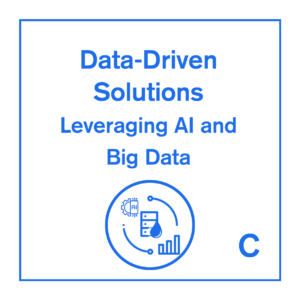Data and digitization are transforming water resource management and climate change adaptation by enabling real-time monitoring, predictive analytics, and data-driven decision-making. With the use of advanced sensors, remote sensing, and AI-driven models, we can significantly improve water availability forecasts, optimize resource allocation, and enhance early warning systems for droughts, floods, and other climate-related events. Digital platforms empower stakeholder collaboration by integrating hydrological, meteorological, and socio-economic data, leading to more effective governance and decision-making processes. By leveraging big data and smart technologies, societies can develop resilient water systems, mitigate risks, and promote sustainable water use in the face of climate change. The sessions under this theme will address these diverse aspects of data-driven solutions.
Theme C: Data-Driven Solutions – Leveraging AI and Big Data

Sessions
Session C1: Monitoring and Open Data
This session explores how monitoring technologies, such as automatic sensors, IoT devices, and satellite remote sensing, contribute to accurate and timely data collection on water resources. It also examines the role of open data sources in facilitating access to this information, promoting transparency, and enabling data-driven decision-making across various sectors involved in water management.
Session C2: Open-Source Models and Advanced Data Analytics
This session delves into the development and application of open-source modeling tools and data analytics frameworks that empower researchers and policymakers to simulate water resource scenarios. It focuses on how these tools leverage big data and machine learning to enhance predictive capabilities, optimize water management strategies, and support evidence-based policy formulation.
Session C3: Enhancing Collaboration with Data Sharing and Digital Tools
This session examines the importance of data sharing among stakeholders and the digital tools that facilitate this process. It highlights platforms and technologies that enable effective collaboration between governments, communities, and organizations, thereby fostering integrated approaches to water governance and climate adaptation efforts.